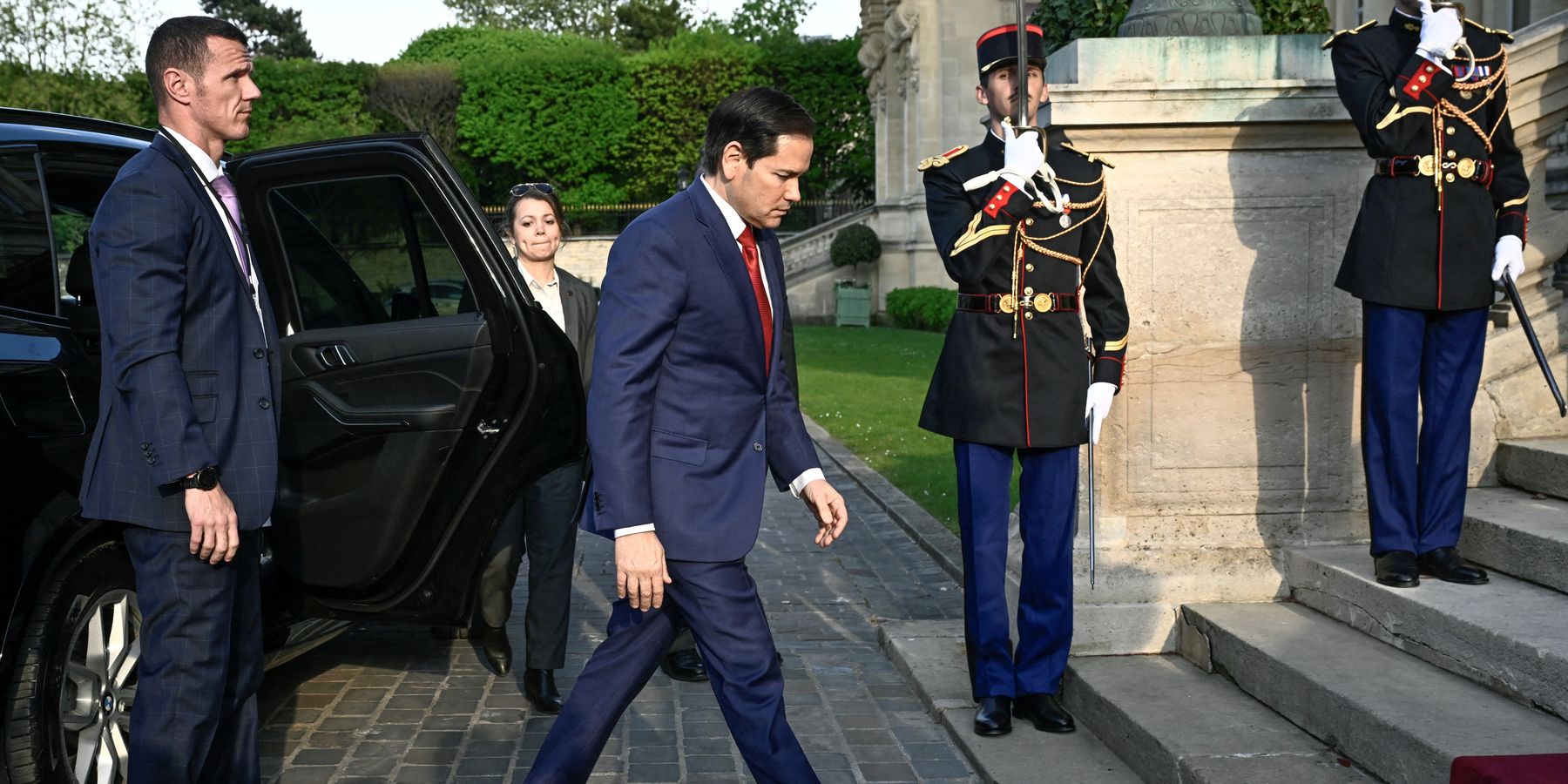In a dramatic statement early this morning, Secretary of State Marco Rubio said President Donald Trump would give it a few more days to see if progress could be made on getting a peace deal between Russia and Ukraine, if not, he will "move on."
"We're not going to continue with this endeavor for weeks and months on end. So we need to determine very quickly now, and I'm talking about a matter of days, whether or not this is doable in the next few weeks," Rubio said Friday in Paris after meeting European and Ukrainian leaders.
The Reuters report did not indicate what, if anything, in those meetings, sparked the somewhat foreboding turn. It is true, though, that broader discussions, at least publicly, have not yielded the straightforward progress that the administration had hoped for, if not promised when Trump took office in January. The administration, led mostly by envoy Steve Witkoff but other top officials including Rubio and Vice President Vance, too, has engaged in numerous meetings now — with Moscow, Kyiv, and European heads of state — but seem no closer to hammering out the fundamentals necessary for a permanent agreement.
"If it's not possible, if we're so far apart that this is not going to happen, then I think the president is probably at a point where he's going to say, 'well, we're done'," Rubio told reporters.
Both Ukraine and Russia appear locked into maximalist demands and attempts at a temporary ceasefire have yielded mixed results, with Russia actually increasing the lethality of its missile strikes, not on energy targets, but on cities, killing dozens of civilians in the last month. In recent weeks, the Trump team as well as Trump, have appeared increasingly frustrated with Russia. Late last month the president said he was "angry" and "pissed off" with what he saw as Moscow's attempts to put monkey wrenches into the process, and threatened more sanctions on the government.
"Whatever Trump may have promised in the past, no sensible analyst ever thought this peace process was going to be quick or easy," noted Lieven after the news.
According to Reuters, three European diplomatic sources told them that Rubio comments reflected growing frustration in the White House over Russian intransigence to end the war. According to the Wall Street Journal, "other Western officials were more optimistic than Rubio about the fate of the talks, saying that Paris meetings had been productive and the U.S. indicated that he has developed a draft concept for how a comprehensive cease-fire might be monitored."
Interestingly, this comes days after Witkoff emerged from talks with Putin himself with a more positive take, saying Monday that he “finally” got an answer to the Russian president's demands for a permanent peace. Witkoff indicated — and this is no surprise — that it revolved around Russian held territories in Ukraine and insisting on no NATO membership for Kyiv. “And I think we might be on the verge of something that would be very, very important for the world at large,” he said.
“It was a compelling meeting,” Witkoff said. “And toward the end, we actually came up with — I’m going to say ‘finally,’ but I don’t mean it in the way that we were waiting, I mean it in the way that it took a while for us to get to this place — what Putin’s request is to get, to have a permanent peace here.”
Lieven said threats like these are part of the negotiation process but the U.S. needs to lay down clear demands for both sides as it is doing so.
"To achieve even a lasting ceasefire, the U.S. negotiating team will need to put forward some concrete and detailed terms for ending the war, and make an explicit threat as to the consequences for whichever side is seen by Washington as most at fault for a failure to agree," he said.
"Russia will need to accept that it will not get any more territory beyond that already occupied, and that the rest of Ukraine will remain sovereign, independent, and sufficiently armed for a credible defense," he added. "Ukraine and the EU will need to agree to a formal promise that Ukraine will not to try to recover its lost territory by force, that it will not get NATO membership or a European 'reassurance force' and that certain categories of weapons will be limited."
These are fundamental to a peace agreement, he added. While Russia can be incentivized by the offer of wider US-Russian detente and the lifting of sanctions, the EU could look forward to a massive EU fund for reconstruction. But both will have to give up their present maximalist demands.
"The threat to Russia must be that if they reject compromise, the U.S. will walk away from the talks, but U.S. aid to Ukraine will continue, greatly strengthening the likelihood that Ukraine will be able to go on making Russian military advances extremely slow, limited, and costly," Lieven added. "The threat to Ukraine and the EU is that if they are intransigent, U.S. aid will stop, greatly increasing the possibility of a Ukrainian collapse."
Of course, it is also quite possible that both sides will remain intransigent. If so, US aid should continue, but at a gradually diminishing level, giving time for the EU gradually to replace it — if it is capable of doing so."
This story has been updated according to ongoing developments
- Why a temporary ceasefire in Ukraine is pointless ›
- With Putin, Trump's 'art of the deal' is put the the test ›
- Ukraine’s battlefield position is deteriorating fast | Responsible Statecraft ›
















